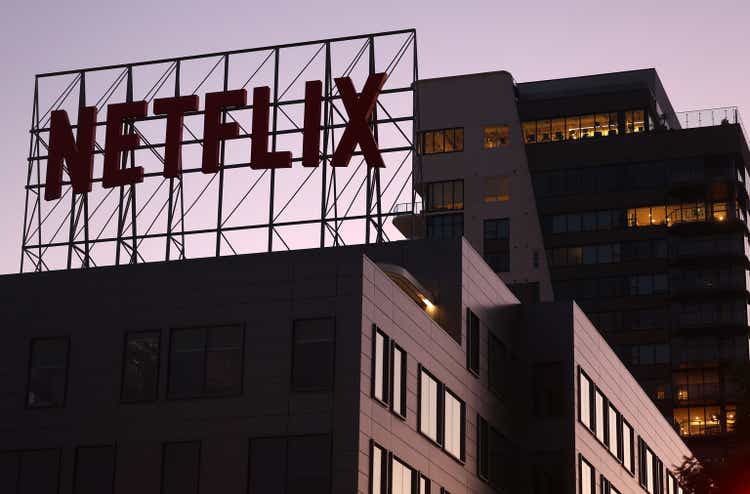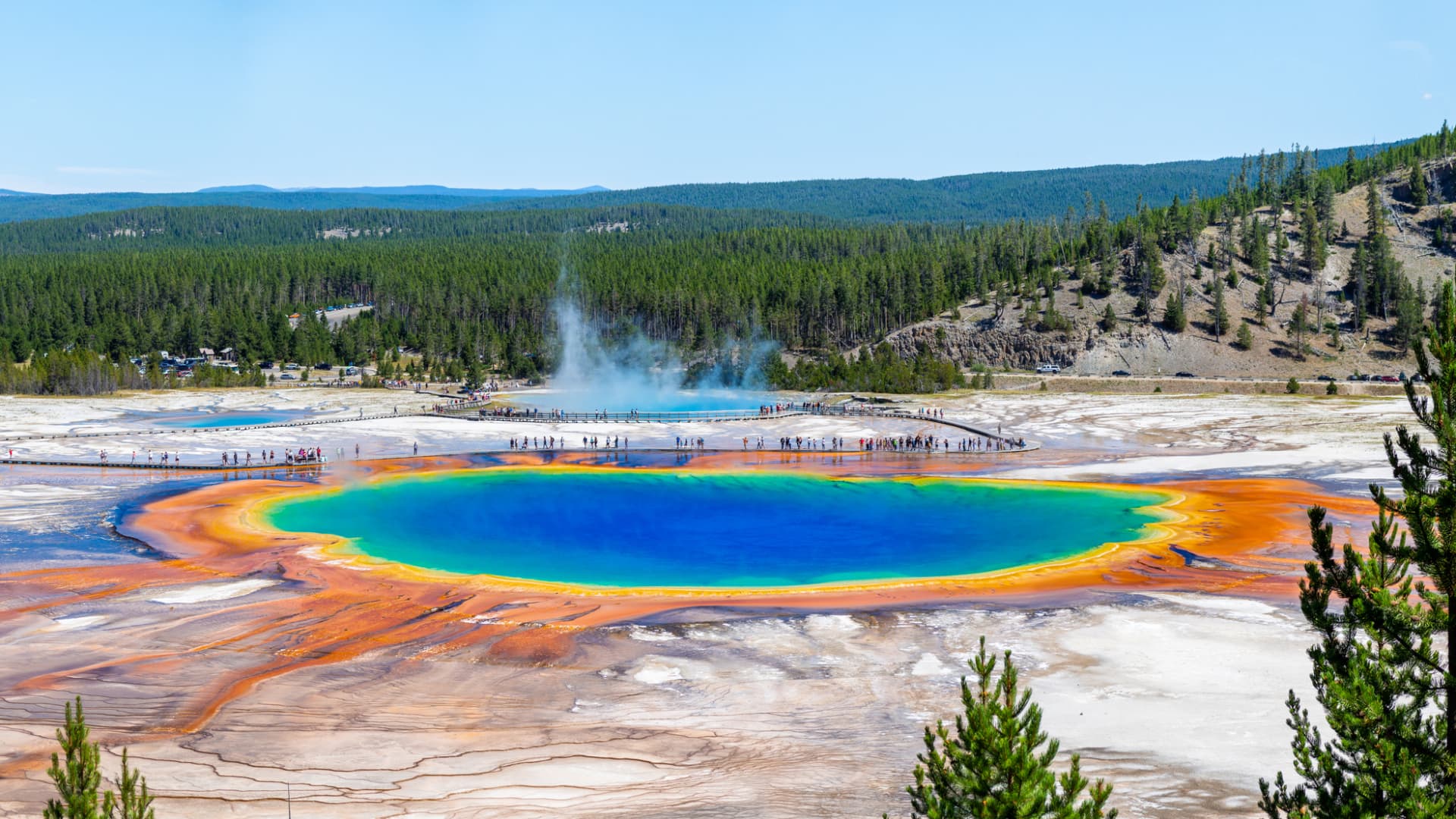Last clinic standing: America’s abortion battle returns to the Supreme Court

Shannon Brewer finds it hard to sit still at her desk. As she fills out forms, her eyes dart every couple of seconds to a large screen with a dozen live feeds from cameras dotted across the abortion clinic she directs. For over a decade, it has been the only clinic in Mississippi, a state of 3m people.
“I don’t know how to not look at that,” she says. The clinic’s cameras and generator have been vandalised in the past and anti-abortion protesters at one point entered the premises in Jackson.
“They would not stop coming onto the property and I had to get a hose and hose them down,” says 49-year-old Brewer. The altercation led her to be convicted of misdemeanour assault and given a fine that was later dropped. The local police, she says, do not provide sufficient protection for the clinic. “It’s like we’re out here and all these ordinances that they have in place they won’t enforce them here.”
Brewer has worked for two decades at the pink-walled Jackson Women’s Health Organization, which has become the focal point of the biggest abortion legal battle in the US in recent times.
The clinic is the respondent in a case involving a 2018 Mississippi law that bans abortions after 15 weeks and which will come before the Supreme Court this week.
Roe v Wade, the 1973 landmark decision that legalised abortion across the US, said states could not ban abortions before a foetus is “viable”, or able to survive outside the womb. This viability line is typically deemed to be between 24 and 28 weeks. In defending the 2018 law, Mississippi is asking the court to reject the viability rule, which it says is “baseless”.
The case has become a defining moment in America’s decades-long political battle over abortion rights because its implications could be even broader. In its submission, Mississippi has explicitly asked the Supreme Court to over-rule Roe v Wade, insisting that abortion is a matter for states and not the federal courts to decide.
“In Roe v Wade, the [Supreme] Court wrongfully took abortion policymaking out of the hands of the people and hid it behind the bench of unelected judges,” said Lynn Fitch, Mississippi attorney-general. She argued that as a right to abortion is not explicitly mentioned in the constitution, it is “reserved for the people to debate and decide how best to protect legitimate interests, like life and women’s health”.
The Mississippi case is also a pivotal moment for the Supreme Court, which now has a 6-3 conservative majority after Donald Trump, in one of his last acts as president before the election in November 2019, secured the appointment to the court of Amy Coney Barrett, a former legal scholar with strongly conservative views.
Conservative activists have worked for decades to nominate Supreme Court justices who they believe will overturn Roe — and many of them hope that Barrett and Brett Kavanaugh, another justice appointed by Trump, will do just that.
The court will hear oral arguments on Wednesday and a ruling is expected by June 2022.
If the Supreme Court sides with Mississippi, nearly half of US states would be poised to outlaw abortion thanks to statutes that include so-called “trigger” laws which automatically come into force if Roe is overturned, according to the Center for Reproductive Rights, which filed the Supreme Court case on behalf of the Jackson clinic. More than one hundred abortion restrictions were passed in the US this year alone, mostly at state level, and four cases reached the Supreme Court in the past six years, according to the CRR.
“Mississippi is an indicator of where the country can head,” says Vara Lyons, policy counsel at the American Civil Liberties Union of Mississippi. “If Roe is overturned, more states will follow”.

The Mississippi case highlights the deepening rift over abortion in a country also grappling with wrenching debates over race and criminal justice.
Conservative legislatures have been emboldened by the recent appointments to the Supreme Court. In September, Republican-led Texas passed one of the most restrictive abortion laws in the country, banning most procedures after six weeks, before many women realise they are pregnant, and with no exception for rape or incest. There is a pending Supreme Court ruling on whether to uphold a Texas district court decision to suspend the law.
“It’s not very common for courts to take away a fundamental right, much less a fundamental right that’s been there for 50 years,” says Mary Ziegler, a law professor at Florida State University and expert on Roe vs Wade.
An ‘abortion desert’
Laws like the one in Texas have pushed some women to travel across state borders in search of abortion services. The number of patients at the Jackson clinic jumped from between 150 and 200 a month to more than 300 since the Texas law came into force. The facility has begun to see patients five days a week, rather than three.
On a recent visit, five patients — all women of colour under the age of 26 and three of them from other states — were waiting for their procedures in silence as the mostly white protesters outside blasted anti-abortion preachings on large speakers.
A 22-year-old had driven alone for seven hours from Houston, Texas. “I’m young, not ready [for a child],” she says. Under the new Texas law, her pregnancy was too advanced to get an abortion closer to home. She thinks the law is “stupid”: “You never know what someone’s circumstances [are] or how it happened. Someone could have been raped or abused emotionally.”
A second patient, a 24-year-old teacher, drove from Louisiana with her mother. “It was extremely early in my relationship and I’m not ready, I’m not ready at all,” she says.

The youngest patient, aged 19, also travelled from Louisiana. Eliminating the “second chance” granted by abortions results in “children raising children”, she says. “A lot of our parents had children young . . . I would hate to go through the same thing my mom had to go through,” she adds, while others nod in agreement. “I’m not proud to be here and it wasn’t an easy decision. But when you’re not ready, you’re not ready. And nobody else can make that decision for you.”
Mississippi law requires patients to visit the clinic twice with a gap of at least 24 hours, exacerbating costs for those who travel from other states. Women spend up to $2,000 in total and often have to take time off work and in some cases arrange childcare, says Brewer.
In the first visit, the clinic must give patients information on abortion risks including a connection to breast cancer that doctors at the facility and other medical experts deem inaccurate. The abortion is performed on the second trip.
“The 24-hour waiting period is basically saying that you as a woman cannot make a decision without going and thinking about it some more,” says Brewer.
The clinic — which receives virtually no external funding — charges $600 for the so-called abortion pill that it administers until 11 weeks. Surgery prices for later-term abortions range between $650 up to 12 weeks and $800 at 16 weeks, a limit set by the clinic as later procedures face additional restrictions in the state.
Over the decades, Mississippi has introduced strict regulations for abortion clinics including a minimum width of doors and hallways. Facilities must be at least 1,500 feet from any church, school or kindergarten.
While the lawmakers who have backed such measures argue they further women’s health, pro-choice advocates say the rules are crafted to burden abortion providers to the point of closure.
“It made it difficult for the clinics to survive year after year after year because these laws have just been rolling out like a series of boulders falling off of a building, bam bam bam!” says Rob McDuff, attorney with the Mississippi Centre for Justice and the Jackson facility’s local counsel on the Supreme Court case. “All of that has contributed to the fact that there’s only one clinic in the state.”
Finding doctors is another challenge for the Jackson clinic. Its physicians come from outside Mississippi. “We have local doctors who actually support us. They can’t deal with the antis [anti-abortion activists],” says Brewer. The activists would complain to the local doctors’ other employers, knock on their neighbours’ doors or leave things in their mailboxes, she says. “They harass them.”
Mississippi is the poorest state in the US, with nearly 20 per cent of its 3m population living in poverty. At 51.9 deaths per 100,000 live births, black women’s pregnancy-linked mortality ratio between 2013 and 2016 was nearly three times that of white women, according to Mississippi’s health department.
Mississippi has become an “abortion desert”, says Michelle Colón, executive director of Sisters Helping Every Woman Rise and Organize (SHERo), a Jackson-based collective focused on reproductive justice matters for black and brown women. Abortion bans, she says, fall hardest on “any marginalised group that is having difficulty making ends meet”, including people of colour or people in rural areas.

Defenders at the gate
Directly outside Jackson’s clinic, the fight over abortion rights plays out on a daily basis. On one side are the Pinkhouse Defenders clad in rainbow-coloured vests, who shield the clinic’s patients from the opposite camp, pro-life protesters trying to dissuade women from getting abortions. Both sides wear cameras on their chests for security and legal reasons.
The protesters who spoke to the FT wanted the facility shut down and abortion outlawed with no exceptions.
Some of the more aggressive pro-lifers shout at the clinic’s patients and put up large posters with images of dead foetuses and slogans such as “ABORTION IS MURDER”. Some believe murder laws should be applied to abortion. “I think that the man who kills his three-year-old child should be held just as accountable as the one who kills their preborn child in the womb,” says Gabriel Olivier, 29.
Less combative protesters include young ballerinas from Ballet Magnificat, a Christian dance company, who pray and play contemporary Christian music on a speaker. Others try giving patients anti-abortion literature while calling out “there are life-affirming alternatives”.
Laura Knight, president of Pro-Life Mississippi, a Christian anti-abortion outreach group, says that winning the Supreme Court case would allow the state to once again “protect our own citizens and protect the women from the abortion industry”.
Anja Baker, Mississippi spokesperson for the Susan B Anthony List, an organisation whose mission is to end abortion by having pro-life officials elected, coordinates support services for pregnant parents. “We believe in not just being pro-birth but being pro-continuum of life, and so making sure women are aware of what’s available to them and finding what isn’t and making it so”.

But a 26-year-old clinic patient with a three-year-old child says that having to rely on welfare payments from the state was not an appealing option. “You want us to be dependent on the government all our lives?” she asks “No. I got dreams, I got ambitions, I’m starting a [transportation] business . . . I’m trying to break the cycle.”
Derenda Hancock, leader of the Pinkhouse Defenders, arrives at the clinic at 6.30am on every operational day. Hancock and her team of volunteers take shifts to guide patients past pro-life activists, some of whom are armed, she says. In Mississippi, carrying a firearm without a permit is allowed.
“The Defenders are everything. They make my job less stressful,” says Brewer, adding things were “chaotic” before their arrival and patients felt less secure.
Hancock believes the anti-abortion protest is about “power and control [over] people with a uterus”. The pending Supreme Court case is the “end game”, she says.
A pivotal case
Both opponents and supporters of abortion believe the case involving the Jackson clinic will have much wider repercussions.
“Nearly 50 countries have liberalised abortion laws over the past 25 years,” says Nancy Northup, CRR’s chief executive. “The US in effect will be out of step with the global trend and will lead the world on retrogression.”
Ziegler says that if Roe is overturned, some states might start chipping away at other rights enshrined “on similar ideas of self-determination”, such as same-sex marriage.
Some groups opposed to abortion have made a similar argument. “These ‘rights’, like the right to abortion from Roe, are judicial concoctions, and there is no other source of law that can be invoked to salvage their existence,” the anti-abortion group Texas Right to Life wrote in a Supreme Court brief in support of Mississippi’s petition.
Speaking on Sunday, Tate Reeves, governor of Mississippi, said that if the Supreme Court were to overturn Roe, the state would consider further restrictions on abortion. “I would like to do everything we can to protect unborn children,” he told NBC.
“I believe very strongly that if you read the Constitution, there is nowhere that prohibits individual states like Mississippi to limit access to abortions,” he said. “And so I think Roe was wrongly decided.”
If Roe is undone there would be no “serious avenue for challenge in the courts”, says McDuff, adding a generational change in the composition of the Supreme Court would be required for the pendulum to swing back.
Brewer says she would be “distraught” if the clinic lost the case because of the implications for her children and grandchildren. “That’s what bothers me more than anything . . . [that] they had something taken away from them . . . I’m fighting for this for them, just like somebody fought for me to be able to have the choice.”
But no matter the outcome, the clinic has no intention of closing. She hopes the facility could still offer services such as ultrasounds, lab work or patient visits. “I don’t see us just shutting the doors,” she says.
World News || Latest News || U.S. News
Source link




